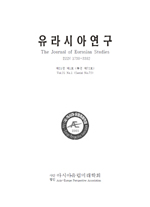한국의 K-IFRS와 K-GAAP 차이와 이에 따른 영향 검토: 사업결합에 따른 무형자산의 인식 및 평가를 중심으로
Examination of Differences and Potential Impacts between K-IFRS and K-GAAP: Emphasis on Intangible Assets Recognition and Valuation upon Business Combination
- 아시아.유럽미래학회
- 유라시아연구
- 제7권 제3호
-
2010.09113 - 132 (20 pages)
-
DOI : 10.31203/aepa.2010.7.3.007
- 0

금융감독원의 국제회계기준 도입 로드맵 발표(2007. 3. 16)에 따라 우리나라 역시 IFRS를 도입하기로 결정하였다. 이에 따라 모든 상장기업은 2011년부터 K-IFRS에 따라 재무제표를 작성하도록 하고 있다. K-IFRS의 도입시기에 대하여 어느 정도의 자율권을 부여하기 위하여 2009년부터 조기도입을 허용하여 이미 13개 기업이 K-IFRS를 조기도입한 바 있다. 국제회계기준은 신뢰성 보다는 목적적합성을 더 중시하면서 공정가치 회계를 중시하고 있기 때문에, 향후 환경의 변화에 따른 공정가치가 반영될 경우 이익이 급변할 가능성이 높고 이에 따른 이익의 불확실성이 높다. 또한 공정가치 회계처리를 위하여 많은 가정과 주관적인 판단이 개입될 수 있는 가치평가방법을 이용한 평가결과가 장부에 반영이 되기 때문에, 적절하지 않은 가정과 평가방법을 사용할 경우 오히려 이익의 변동을 더 왜곡할 위험성도 있다. 특히 국내에서는 사업결합 과정에서 피 취득회사가 장부에 이미 계상하고 있는 무형자산 이외에 추가적인 무형자산을 인식하는 경우가 거의 없었다. 그러나 국제회계기준이 도입이 된 이후에는 사업결합 과정에서 무형자산을 별도로 인식해야 하고, 영업권에 대해서도 상각하지 않고 반드시 손상검사를 통해서만 손상차손을 인식하도록 되어 있다. 따라서 본 연구에서는 사업결합 과정에서의 무형자산 평가와 관련한 K-IFRS와 기존의 기업회계기준의 차이를 비교 검토하고 회계기준 차이에 따른 영향을 분석·검토하였다. 검토 결과에 따르면, 국제회계기준이 도입되기 이전에 회사나 감사인 모두 체계적인 무형자산 인식 및 평가시스템에 대한 이해와 더불어 영업권 손상평가를 위한 시스템 구축이 필요하다. 본격적으로 국제회계기준이 도입되기 이전에 정보 이용자와 정책당국 모두 가치평가 기법, 특히 사업결합에 따른 무형자산의 인식과 평가, 영업권과 무형자산의 손상검사의 중요성을 충분히 인지하고 이에 따른 방안을 강구해 나가야 할 것이다. 본 연구결과는 향후 감독당국이나 회계법인이 K-IFRS 도입에 따른 무형자산의 평가가 가치평가에 미치는 중요성을 인식하고 대응방안을 모색하는 데 도움을 제공할 수 있을 것으로 기대된다.
Korea decided to adopt IFRS according to Financial Advisory Service, announcing “Roadmap of International Financial Reporting Standards Adoption(2007. 3. 16).” Therefore, all public companies will be required to file financial reporting in accordance with K-IFRS since 2011. In order to offer somehow flexibility in timeline, early adoptions have been allowed from 2009, resulting in 13 companies’ early adoption of K-IFRS. Since IFRS gives higher emphasis on objectivity, significance in fair value accounting, than credibility, profit is likely fluctuating and unpredictable as the fair value due to the change in market conditions is reflected. Also, highly misleading valuation outcome could be resulted when it involves inappropriate assumptions and valuation methods from flexibility and subjectivity due to the fact that fair value accounting transactions allow principles-based approach. In domestic specifically, during business combination, target barely recognized additional intangible assets besides assets already being appropriated on the book. However, additional intangible assets in combination must be recognized separately as well as goodwill being recognized with gain and loss difference from performing an impairment test upon adopting IFRS. Therefore, this study is prepared to compare the difference of intangible asset valuation between K-IFRS and K-GAAP in business combination transaction as well as the potential impacts of different accounting standards. According to findings, a strong understanding for structured recognition of intangible asset as well as valuation and system for goodwill impairment must be prepared before adoption of IFRS for both companies and auditors. Prior to adopt regular IFRS system, financial information users and policy makers will have to percept the valuation methods, especially in intangible assets valuation and recognition in business combination, and the significance of impairment test for goodwill and intangible assets, and deliberate consequential plans. The findings in this study are expected to be used in recognizing crucial impact of intangible assets valuation upon K-IFRS adoption for governmental regulator and accounting firms.
Ⅰ. 서 론
Ⅱ. 사업결합에 따른 무형자산의 인식 및 평가에 대한 K-IFRS와 K-GAAP의 비교
Ⅲ. 사업결합에 따른 무형자산의 인식 및 평가에 대한 K-IFRS의 가치판단 검토
Ⅳ. 회계기준 차이에 따른 영향 분석 및 대응 방안
참고문헌
(0)
(0)